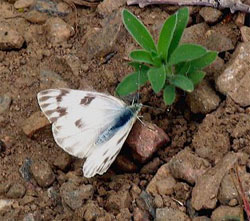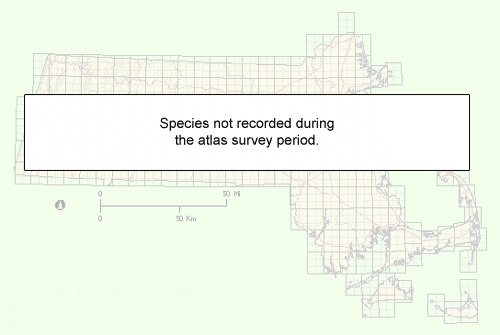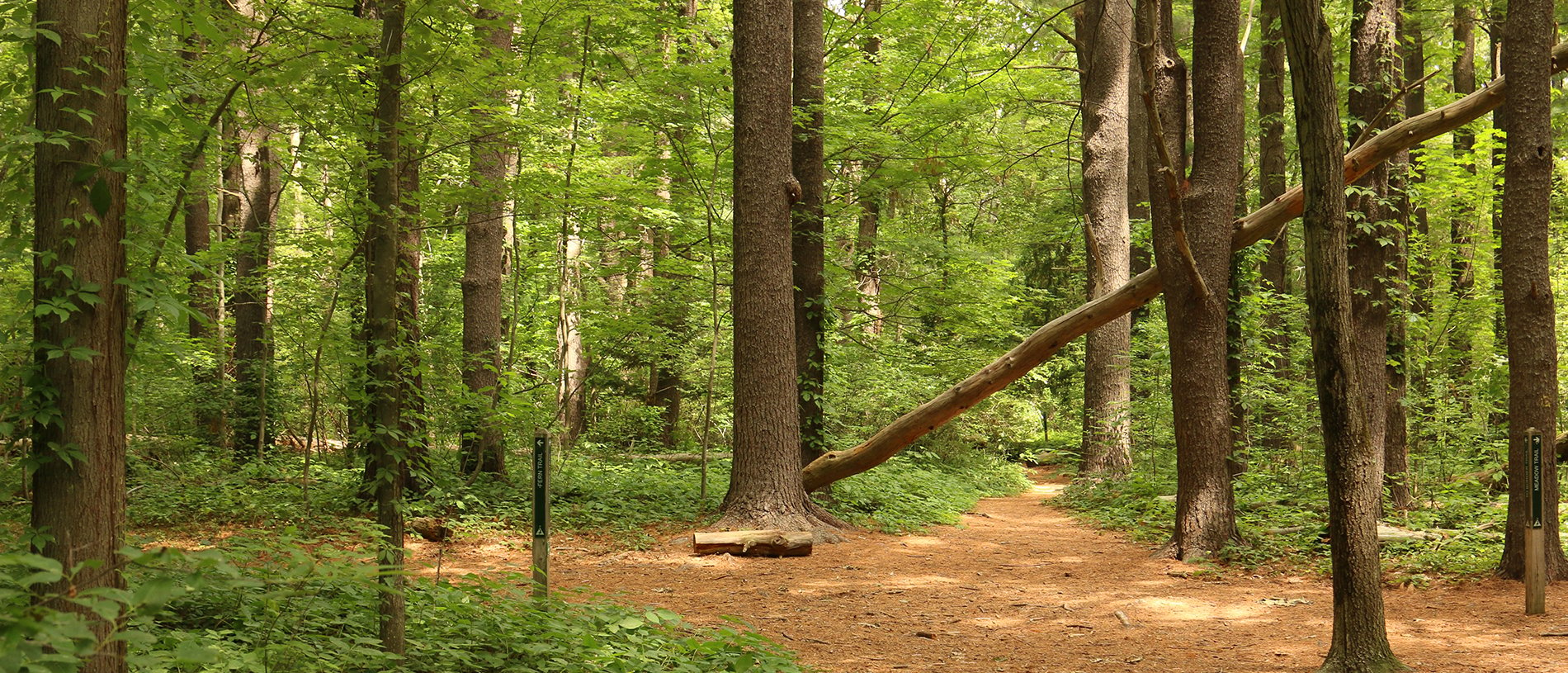Butterfly Atlas
Find a Butterfly
Checkered White
Pontia protodice
Named
Boisduval and LeConte, 1829

Identification
Wingspan: 1 1/4 - 1 3/4". Easily distinguished from all other eastern whites by blackish checkering, especially on forewing above. This is much more pronounced in females, but even in sparsely marked males the pattern is very different from the most similar species, Cabbage White.
Distribution
Resident throughout the southern half of the U.S. from central California across the southern Great Plains to Virginia southward into Mexico, Florida and the Greater Antilles. Regularly moves northward, continent-wide, establishing temporary populations as far as southern Canada.
Status in Massachusetts
Rare straggler from the South. Once occurred more frequently, though always irregular and never known to be resident.Scudder (1889) says: "It is now and then seen in New England and is occasionally common in some of the warmer parts." The most recent record for Massachusetts is of a single male at Fall River (Bristol Co.) 4 October 1943, (Rogers, 1946). Other records include: Hinsdale (Berkshire Co.) 21-23 August 1898 "quite abundant in a turnip field with Cabbage White, which out-numbered it four or five to one" (Knab, 1898); one female, Westport Harbor (Bristol Co.), 9 September 1940 (Rogers, 1946). Scudder (1889) also notes (without details) records for Holyoke, Boston, Braintree and Belmont, Mass. A straggler was found in a truck garden in Augusta, Maine, 9 August 1951 (J. Brower).

Flight Period in Massachusetts
The most recent dates (see Distribution above) for the state are 21 August-4 October.
Larval Food Plants
A wide variety of wild and cultivated mustards (Cruciferae), including common weedy species. Wild Peppergrass (Lepidium virginicum) is especially favored.
Adult Food sources
Information for this species in Massachusetts is currently unavailable.
Habitat
Fields, weed lots, agricultural areas, dunes, and other dry open areas, apparently favoring disturbed areas where weedy mustards are common.
Life Cycle
Information for this species in Massachusetts is currently unavailable.
Account Author
Chris Leahy



